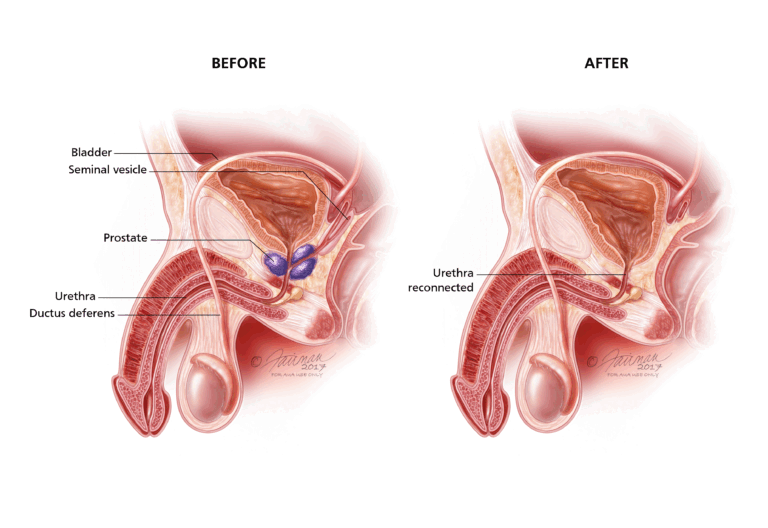How to Sleep More in Less Time: The Ultimate Hack for Busy People

Understanding the Importance of Quality Sleep

Sleep is one of the most essential components for maintaining good health and overall well-being. It plays a crucial role in various physiological processes in the body, such as hormone production, cellular repair, and memory consolidation. Quality sleep not only helps in physical recovery but also has a profound impact on mental health, cognitive function, and productivity.
During sleep, the body goes through different stages, including deep sleep and rapid eye movement (REM) sleep. Each stage has its own unique purpose and benefits. Deep sleep is responsible for restorative processes, such as muscle repair, tissue growth, and the release of growth hormones. REM sleep, on the other hand, is crucial for brain function, memory formation, and emotional regulation.
Research has consistently shown that inadequate sleep or poor sleep quality can have detrimental effects on various aspects of our lives. It can contribute to increased risks of developing chronic health conditions, such as obesity, diabetes, cardiovascular diseases, and mental health disorders. Additionally, insufficient sleep can impair cognitive abilities, including memory, attention, problem-solving, and decision-making skills, ultimately affecting productivity and performance in daily activities.
Understanding the importance of quality sleep is the first step towards adopting healthy sleep habits and optimizing overall well-being. By prioritizing sleep and making necessary lifestyle adjustments, individuals can reap the benefits of improved physical health, enhanced cognitive function, and increased productivity in their personal and professional lives.
Identifying Common Sleep Disorders and their Impact on Productivity
Sleep disorders are prevalent in today’s fast-paced society and can have a significant impact on productivity. One common sleep disorder is insomnia, which refers to difficulty falling asleep or staying asleep. People with insomnia often experience daytime fatigue, lack of concentration, and irritability, which can significantly affect their performance at work or school. It is estimated that approximately 30% of adults suffer from insomnia at some point in their lives.
Another sleep disorder that can hinder productivity is sleep apnea. This condition is characterized by pauses in breathing during sleep, leading to fragmented sleep and excessive daytime sleepiness. Sleep apnea not only affects the individual’s ability to concentrate and function effectively but also increases the risk of accidents due to fatigue. Studies have shown that individuals with untreated sleep apnea are more likely to make errors and are less productive compared to those without the disorder.
Additionally, restless legs syndrome (RLS) is a sleep disorder that can cause discomfort and an irresistible urge to move the legs, especially during periods of rest or sleep. This can lead to disrupted sleep, resulting in daytime sleepiness and decreased productivity. RLS affects both quality and quantity of sleep, and individuals suffering from this disorder often experience decreased cognitive function and impaired decision-making abilities.
Addressing common sleep disorders is crucial in optimizing productivity and overall well-being. By identifying these disorders and understanding their impact on productivity, individuals can seek appropriate treatments and make lifestyle changes that promote better sleep. Creating awareness about the importance and consequences of sleep disorders is vital in helping individuals prioritize sleep and take necessary steps to improve their sleep quality.
Establishing a Consistent Sleep Schedule
One of the key factors in achieving quality sleep is establishing a consistent sleep schedule. This means going to bed and waking up at the same time every day, even on weekends. By maintaining a regular sleep routine, your body becomes accustomed to a specific pattern, allowing it to anticipate and prepare for sleep. This can help regulate your body’s internal clock, also known as the circadian rhythm, leading to improved sleep quality and overall well-being.
When establishing a consistent sleep schedule, it is crucial to prioritize the recommended amount of sleep for your age group. The National Sleep Foundation recommends that adults aim for seven to nine hours of sleep per night, while teenagers require around eight to ten hours, and younger children and infants need even more. By understanding the recommended sleep duration for your age group, you can make conscious efforts to ensure you are consistently getting the necessary amount of rest each night. Additionally, it is important to take into account any individual variations, such as personal energy levels and overall health, which may require adjustments to the suggested guidelines. Creating a consistent sleep schedule tailored to your specific needs can significantly enhance your sleep quality and overall health.
Creating a Sleep-friendly Environment

Creating a sleep-friendly environment is crucial for ensuring a restful and rejuvenating night’s sleep. The surroundings in which we sleep can greatly impact the quality of our sleep and, ultimately, our overall well-being. By following a few simple steps, you can transform your bedroom into a sanctuary of relaxation that promotes deep and uninterrupted sleep.
First and foremost, consider the lighting in your bedroom. Exposure to bright lights, especially in the evening, can disrupt your body’s natural sleep-wake cycle. To create a sleep-friendly environment, opt for soft, dim lights or invest in blackout curtains to block out any external light sources. Additionally, keep electronic devices with bright screens, such as smartphones or tablets, out of your bedroom as the blue light emitted from these devices can interfere with your body’s production of melatonin, a hormone essential for sleep regulation.
Secondly, pay attention to the overall temperature and air quality in your bedroom. The ideal sleeping temperature is around 65 to 68 degrees Fahrenheit, as cooler temperatures are known to promote better sleep. Ensure proper ventilation in your room to improve air quality and consider using a humidifier or dehumidifier, depending on your specific needs. A comfortable sleeping environment with optimum temperature and air quality can contribute to a more restful and uninterrupted sleep.
Creating a sleep-friendly environment goes beyond just the physical aspects of your bedroom. It also involves removing any potential distractions or sources of stress. Keep your bedroom clean and clutter-free, as a messy space can lead to feelings of uneasiness and anxiety. Designate your bedroom as a peaceful sanctuary, strictly for rest and relaxation, and avoid engaging in stimulating activities such as work or watching TV in bed.
By implementing these simple yet effective strategies, you can create a sleep-friendly environment that promotes deep and restorative sleep. Remember, the quality of your sleep directly impacts your overall health and well-being, so prioritizing an environment conducive to sleep is essential. Take the necessary steps to transform your bedroom into an oasis of tranquility, and reap the benefits of a truly restful night’s sleep.
Implementing Relaxation Techniques before Bedtime

Creating a relaxing bedtime routine is essential for getting a good night’s sleep. By implementing relaxation techniques before bedtime, you can help calm your mind and prepare your body for a restful sleep. These techniques can be particularly beneficial if you often find it difficult to unwind after a long and hectic day.
One effective relaxation technique is deep breathing, which helps to slow down your heart rate and relax your muscles. To practice deep breathing, find a comfortable position and take slow, deep breaths in through your nose, allowing your abdomen to rise as you inhale. Then, exhale slowly through your mouth, letting go of any tension or stress with each breath. Repeat this cycle for several minutes, focusing on your breath and letting go of any racing thoughts. Deep breathing can help promote a sense of relaxation and serenity before bed, allowing you to smoothly transition into a peaceful sleep.
Exploring the Benefits of Power Napping

Power napping, also known as a brief nap or a catnap, has gained significant attention in recent years due to its potential benefits for overall well-being and productivity. Short and strategic periods of daytime sleep have been found to enhance alertness, improve mood, and boost cognitive function. Research suggests that power napping can lead to increased focus, improved memory retention, and enhanced creativity.
The benefits of power napping can be attributed to its ability to combat fatigue and restore energy levels. When we experience a dip in alertness during the day, a power nap of around 10-20 minutes can provide the necessary rejuvenation to keep us refreshed and alert. Napping allows the brain to enter into a state of rest, which promotes the release of adenosine, a chemical that helps regulate sleep and wakefulness. By taking a short nap, individuals can reap the rewards of better concentration and mental clarity, enabling them to tackle tasks more efficiently and effectively.
Moreover, power napping has been shown to have positive effects on mood and overall emotional well-being. Research indicates that short periods of sleep can help reduce stress and improve mood by lowering cortisol levels, the hormone associated with stress response. Taking time to recharge through a power nap can lead to a more positive outlook, increased resilience, and enhanced problem-solving abilities.
In conclusion, exploring the benefits of power napping reveals its potential to improve mental acuity, increase productivity, and enhance overall well-being. Incorporating short periods of daytime sleep into our routine can offer numerous advantages, including heightened alertness, improved mood, and better cognitive function. As further research continues to support the benefits of power napping, it is worth considering this simple yet effective strategy for optimizing our daily performance and promoting optimal health.
Maximizing Sleep Efficiency through Smart Technology
Smart technology has revolutionized various aspects of our lives, and sleep is no exception. With the advancement in technology, there are now several devices and gadgets that aim to enhance our sleep efficiency. These smart technologies can help monitor and analyze our sleep patterns, providing valuable insights for improving the quality of our rest.
One such smart technology is the sleep tracker, which is typically worn on the wrist like a watch. This device uses sensors to track your movement and heart rate during the night, providing data on the duration and quality of your sleep. By analyzing this information, you can identify any patterns or disruptions that may be affecting your sleep and make the necessary adjustments to optimize your rest. Additionally, some sleep trackers also offer features like smart alarms, which wake you up at the optimal time within your sleep cycle, leaving you feeling refreshed and revitalized in the morning.
Prioritizing Sleep over Screen Time
In today’s digital age, it is becoming increasingly common for people to prioritize screen time over getting a good night’s sleep. Whether it’s scrolling through social media, binge-watching a favorite TV show, or answering work emails late into the night, these habits can have a detrimental effect on our sleep quality and overall well-being.
Numerous studies have shown that exposure to the blue light emitted by electronic devices can interfere with our natural sleep-wake cycle, also known as the circadian rhythm. This blue light suppresses the production of melatonin, a hormone that helps regulate sleep. As a result, spending excessive hours in front of screens before bedtime can make it harder to fall asleep and may lead to shorter and more disrupted sleep. Additionally, the stimulating nature of screen activities can overexcite the brain, making it difficult to wind down and relax.
Here’s a table summarizing the benefits of prioritizing sleep over screen time:
| Prioritizing Sleep over Screen Time | Benefits and Considerations | Credible Source |
|---|---|---|
| Improved Sleep Quality | Prioritizing sleep over screen time can lead to improved sleep quality. Exposure to the blue light emitted by screens, especially before bedtime, can interfere with the production of the sleep hormone melatonin. | National Sleep Foundation – How Light Affects Your Sleep |
| Enhanced Circadian Rhythms | Maintaining a regular sleep-wake schedule, without prolonged screen use before bedtime, helps regulate circadian rhythms. This consistency supports better overall sleep patterns. | Harvard Health Publishing – Blue light has a dark side |
| Reduced Insomnia Risk | Limiting screen time before sleep is associated with a lower risk of insomnia. Electronic devices can contribute to a hyperaroused state, making it difficult for individuals to relax and fall asleep. | Journal of Clinical Sleep Medicine – Evening use of light-emitting eReaders negatively affects sleep |
| Enhanced Mental Health | Prioritizing sleep can positively impact mental health. Quality sleep is linked to better mood regulation and reduced stress levels, while excessive screen time, particularly with content that may be stimulating or stressful, can have the opposite effect. | Sleep Health Journal – Associations between screen time and sleep duration are primarily driven by portable electronic devices |
| Improved Cognitive Performance | Adequate sleep is crucial for cognitive function. Prioritizing sleep over late-night screen use can contribute to better attention, memory, and overall cognitive performance. | Sleep Medicine Reviews – The impact of sleep duration on performance among competitive athletes: a systematic literature review |
| Eye Health Preservation | Reducing screen time, especially in the evening, may contribute to eye health. Prolonged exposure to screens, particularly in low-light conditions, can cause eye strain and disrupt sleep-wake cycles. | American Academy of Ophthalmology – How Screens Affect Your Eyes |
| Healthy Sleep Hygiene Habits | Prioritizing sleep over screen time supports the development of healthy sleep hygiene habits, contributing to a more consistent and restful sleep routine. | SleepFoundation.org – Sleep Hygiene |
Incorporating Physical Activity into your Daily Routine
Physical activity is an essential component of maintaining a healthy lifestyle. Incorporating regular exercise into your daily routine provides numerous benefits to not only your physical well-being but also your mental and emotional health. Engaging in physical activity helps to increase cardiovascular fitness, improve muscle tone and strength, and enhance overall flexibility and mobility.
Regular physical activity has been linked to a reduced risk of chronic diseases such as heart disease, type 2 diabetes, and certain types of cancer. It also aids in maintaining a healthy weight and can contribute to improved sleep patterns. Engaging in exercise releases endorphins, which are known as “feel-good” hormones, promoting a sense of well-being and reducing stress and anxiety levels.
To incorporate physical activity into your daily routine, it is important to set realistic goals and find activities that you genuinely enjoy. This can be as simple as taking a brisk walk, riding a bike, or even dancing. Aim for at least 150 minutes of moderate-intensity aerobic activity per week, along with strength training exercises two days a week. Remember to start slowly and gradually increase the intensity and duration of your workouts to avoid injury. Additionally, consider incorporating activities that focus on improving balance and flexibility, such as yoga or Pilates. By making physical activity a priority in your daily routine, you are taking an important step towards optimal health and well-being.
Nourishing your Body with Sleep-enhancing Foods
Sleep is an essential function that allows our bodies to rest and recover. While many factors can influence the quality of our sleep, our diet plays a significant role in promoting healthy and restful sleep. Nourishing our bodies with sleep-enhancing foods can help improve the duration and quality of our sleep, leading to increased productivity and overall well-being.
One key nutrient that can positively affect our sleep is tryptophan. Tryptophan is an amino acid that serves as a precursor to serotonin and melatonin, both of which are important neurotransmitters involved in regulating sleep. Foods rich in tryptophan include turkey, chicken, fish, tofu, cheese, nuts, and seeds. Consuming these foods throughout the day, but especially in the evening, can help increase the availability of tryptophan and promote better sleep.
Another important nutrient for promoting sleep is magnesium. Magnesium is involved in over 300 biochemical reactions in the body, including those that regulate sleep. Low magnesium levels have been associated with difficulty falling asleep and staying asleep. Good sources of magnesium include leafy green vegetables, whole grains, nuts, and seeds. Incorporating these foods into our daily diet can help optimize magnesium levels and promote better sleep.
Exploring Natural Sleep Aids and Supplements
Quality sleep is essential for good overall health and well-being. However, many individuals struggle to achieve a restful night’s sleep due to various reasons such as stress, anxiety, or certain medical conditions. In the quest for better sleep, natural sleep aids and supplements have gained popularity as potential remedies. These natural remedies encompass a wide range of products, such as herbal extracts, vitamins, minerals, and other dietary supplements, that are believed to promote relaxation and improve sleep quality.
One commonly used natural sleep aid is melatonin, a hormone found naturally in the body that helps regulate the sleep-wake cycle. Melatonin supplements are often used to assist with sleep problems, particularly for individuals who have difficulty falling asleep. Research suggests that melatonin supplementation may help reduce the time it takes to fall asleep, increase total sleep time, and enhance the overall quality of sleep. While melatonin is generally considered safe for short-term use, it is crucial to consult a healthcare professional before starting any new supplements, especially if you have underlying medical conditions or are taking other medications.
Another natural sleep aid that has gained attention is valerian root. Valerian has been used for centuries as an herbal remedy for sleep disorders and anxiety. This plant-based supplement is believed to have a calming effect on the nervous system, promoting relaxation and improving sleep quality. Although there is limited scientific evidence to support its effectiveness, some studies suggest that valerian may help improve sleep latency (the time it takes to fall asleep) and overall sleep quality. However, as with any supplement, it is important to consult with a healthcare provider before incorporating valerian root into your routine, as it may interact with certain medications or have potential side effects.
While natural sleep aids and supplements may offer some benefits for individuals struggling with sleep disorders, it is crucial to approach them with caution. It is essential to consult a healthcare professional before starting any new sleep aid or supplement, especially if you have underlying health conditions or are taking other medications. Additionally, natural remedies should not be seen as a substitute for addressing underlying causes of sleep problems, such as stress management, establishing a consistent sleep schedule, and creating a sleep-friendly environment. By combining natural remedies with healthy sleep habits, individuals can work towards achieving a restful night’s sleep and improving their overall quality of life.
Managing Stress and Anxiety for Better Sleep Quality
Stress and anxiety can significantly impact our ability to get a good night’s sleep. When we are under stress, our body releases cortisol, a stress hormone, which can disrupt our sleep patterns and make it difficult to fall asleep or stay asleep throughout the night. Likewise, anxiety can cause racing thoughts and a constant state of alertness, making it hard for our minds to relax and unwind. The result is often a restless night of tossing and turning, leading to a decrease in sleep quality and overall well-being.
To manage stress and anxiety for better sleep quality, it is essential to prioritize self-care practices that promote relaxation and mental calmness. One effective method is to engage in stress-reducing activities before bedtime. This may include practicing mindfulness or meditation, engaging in deep breathing exercises, or incorporating relaxation techniques such as progressive muscle relaxation or guided imagery. These practices can help calm the mind and reduce the physiological effects of stress and anxiety, ultimately paving the way for a more restful and rejuvenating sleep.
Additionally, it is crucial to create a bedtime routine that supports relaxation and peace of mind. Establishing a consistent sleep schedule can help regulate our internal body clock, making it easier to fall asleep and wake up at desired times. Furthermore, creating a sleep-friendly environment can contribute to a soothing atmosphere conducive to sleep. This may involve keeping the bedroom dark, quiet, and cool, as well as removing electronic devices that can stimulate the mind and interfere with the production of melatonin, a hormone that aids in sleep onset. By prioritizing stress management and incorporating relaxation techniques into our daily routines, we can significantly improve our sleep quality and overall well-being.
Seeking Professional Help for Persistent Sleep Issues
For individuals experiencing persistent sleep issues, seeking professional help is crucial in order to accurately diagnose and effectively manage the problem. Sleep disorders can significantly impact an individual’s overall well-being and productivity, making it imperative to consult with a healthcare professional who specializes in sleep medicine.
A sleep specialist can conduct a thorough evaluation to identify potential underlying causes of the sleep problem. This may involve a comprehensive medical history review, a physical examination, and the implementation of sleep tests such as polysomnography or a multiple sleep latency test. These tests can provide valuable insights into an individual’s sleep patterns, breathing regularity, and brain activity while asleep. By analyzing the results, a qualified professional can determine the presence of disorders such as insomnia, sleep apnea, restless legs syndrome, or narcolepsy, among others.
Once a diagnosis has been established, a sleep specialist can guide patients in developing a personalized treatment plan tailored to their specific needs. This may involve various interventions such as cognitive behavioral therapy for insomnia (CBTI), continuous positive airway pressure (CPAP) therapy for sleep apnea, medications, or alternative therapies. Additionally, lifestyle modifications and sleep hygiene practices may be recommended to enhance the quality of sleep.
In conclusion, for those struggling with persistent sleep issues, seeking professional help from a sleep specialist is crucial for accurate diagnosis and effective management. With the guidance of a qualified healthcare professional, individuals can gain a better understanding of their sleep disorder and work towards improving their sleep quality, overall health, and productivity.
What is the importance of quality sleep?
Quality sleep is essential for overall health and well-being. It helps rejuvenate the body and mind, enhances cognitive function, boosts productivity, and strengthens the immune system.
What are some common sleep disorders that can affect productivity?
Common sleep disorders include insomnia, sleep apnea, restless leg syndrome, and narcolepsy. These disorders can disrupt sleep patterns, leading to daytime sleepiness, decreased productivity, and impaired cognitive function.
How can I establish a consistent sleep schedule?
To establish a consistent sleep schedule, try to go to bed and wake up at the same time every day, even on weekends. This helps regulate your body’s internal clock and promotes more restful sleep.
What can I do to create a sleep-friendly environment?
Create a sleep-friendly environment by keeping your bedroom dark, quiet, and cool. Use comfortable bedding, invest in a supportive mattress, and minimize electronic devices in the bedroom.
Are there any relaxation techniques I can implement before bedtime?
Yes, there are several relaxation techniques you can try before bedtime, such as deep breathing exercises, meditation, progressive muscle relaxation, or listening to calming music.
What are the benefits of power napping?
Power napping, which typically lasts for 20 minutes or less, can help improve alertness, enhance cognitive function, and boost productivity. It can also help alleviate daytime sleepiness.
How can smart technology maximize sleep efficiency?
Smart technology, such as sleep tracking devices or smart lights, can help monitor your sleep patterns, optimize your bedroom environment, and provide insights to improve your sleep quality.
Why is it important to prioritize sleep over screen time?
Exposure to screens, particularly before bedtime, can disrupt your sleep patterns due to the blue light emitted. Prioritizing sleep over screen time allows your brain to wind down and promotes better sleep quality.
How can physical activity contribute to better sleep?
Regular physical activity can help regulate your sleep-wake cycle, reduce stress and anxiety, promote relaxation, and improve the overall quality of your sleep.
Are there any sleep-enhancing foods that I can incorporate into my diet?
Yes, certain foods can promote better sleep, such as foods rich in tryptophan (e.g., turkey, bananas), whole grains, nuts, seeds, and herbal teas like chamomile. It is important to maintain a balanced diet overall.
What are some natural sleep aids and supplements that can help improve sleep quality?
Natural sleep aids and supplements, such as melatonin, valerian root, lavender essential oil, or magnesium, may help improve sleep quality for some individuals. However, it is recommended to consult with a healthcare professional before using them.
How can I manage stress and anxiety to improve sleep quality?
Managing stress and anxiety can be beneficial for better sleep quality. Techniques like practicing mindfulness, engaging in relaxation exercises, seeking therapy, or using stress reduction techniques can help alleviate these issues.
When should I seek professional help for persistent sleep issues?
If you have tried various strategies to improve your sleep but continue to experience persistent sleep issues, it is advisable to seek professional help from a sleep specialist or healthcare provider. They can evaluate your condition, provide a proper diagnosis, and recommend appropriate treatments.






